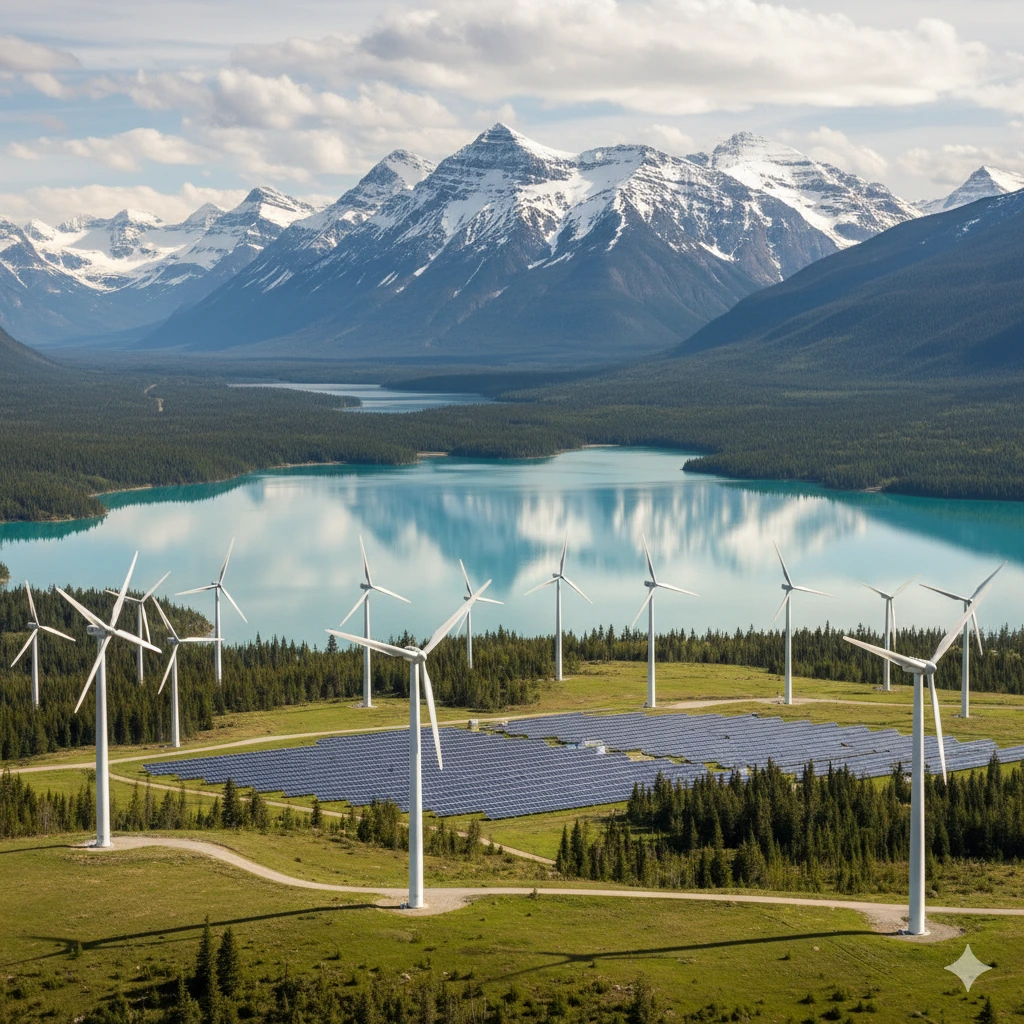|
Getting your Trinity Audio player ready... |
Canada is stepping up its commitment to sustainability with the launch of a series of new policies and incentives designed to fuel innovation in the clean energy sector. Announced by the Ministry of Natural Resources Canada (NRCan), the 2025 initiative aims to strengthen the nation’s green economy while driving progress toward its ambitious net-zero emissions by 2035 target.
With global energy transitions gaining momentum, Canada’s latest policy framework focuses on clean energy entrepreneurship, research funding, and private investment partnerships to position the country among the top global leaders in renewable energy innovation.
A Boost for Clean Energy Startups
The government has launched the Clean Energy Innovation Program (CEIP), a $1.8 billion fund supporting early-stage startups working on technologies like solar optimization, hydrogen fuel systems, and carbon capture.
“Startups are the driving force behind Canada’s clean energy revolution,” said Jonathan Wilkinson, Canada’s Minister of Energy and Natural Resources. “We want to empower innovators who can turn groundbreaking ideas into scalable climate solutions.”
The CEIP will provide:
- Grants of up to CAD 2 million for early-stage green startups.
- Tax incentives for companies investing in renewable energy R&D.
- Access to federal labs and technical resources to accelerate product testing and commercialization.
Collaboration Between Provinces and Industry Leaders
Canada’s clean energy expansion is not limited to federal efforts — provinces like Ontario, British Columbia, and Alberta are aligning their regional strategies to encourage public-private collaboration.
In British Columbia, for instance, the CleanBC Tech Hub has partnered with local universities to create a talent pipeline for clean tech industries. Ontario is expanding its Green Energy Manufacturing Corridor, offering subsidies to EV and solar panel manufacturers.
Major corporations such as Enbridge, Hydro One, and Ballard Power Systems have also pledged to invest in research partnerships, supporting startups through funding and mentorship programs.
Encouraging International Partnerships
Canada’s clean energy sector is also attracting global attention. The new policies emphasize cross-border collaborations, especially with U.S. and European green technology firms.
The government is working on establishing bilateral innovation exchanges that allow Canadian startups to test and deploy technologies in international markets.
Additionally, Export Development Canada (EDC) plans to simplify export financing for renewable energy companies, helping them scale their products globally.
The Push Toward Renewable Energy and Hydrogen
A key focus area in the new policy framework is hydrogen energy — considered a cornerstone of Canada’s clean energy future. The government aims to make the country a top-three global hydrogen producer by 2030 through investments in production hubs in Alberta and Quebec.
The Hydrogen Strategy for Canada, initially launched in 2020, has been updated for 2025 with new grants for companies focused on hydrogen storage, transportation, and fueling infrastructure.
Challenges and Long-Term Vision
While the new initiatives are widely praised, experts highlight that Canada’s clean energy transformation will require continuous funding, skilled labor, and supportive regulatory frameworks.
“Policies alone won’t ensure success,” noted Dr. Emily Parsons, energy economist at the University of Toronto. “We must invest in education, digital infrastructure, and regional partnerships to make the transition sustainable.”
Still, with its natural resources, political stability, and innovative ecosystem, Canada remains well-positioned to become a global hub for clean technology.
Final Words
Canada’s new clean energy policies represent more than just climate action — they symbolize an economic transformation driven by innovation and sustainability. By empowering startups, encouraging collaboration, and fostering research, the nation is laying a strong foundation for a green, tech-driven future.
As the world moves toward decarbonization, Canada’s model could inspire other nations to integrate technology and sustainability in building the next generation of clean energy economies.







